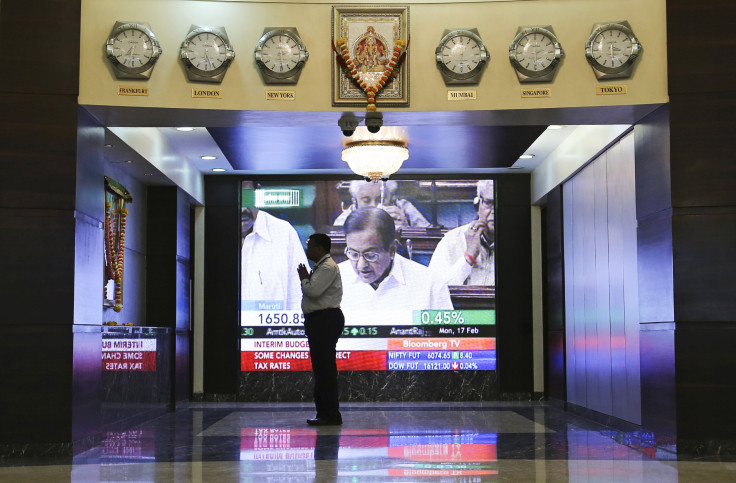India's GDP Grew At 4.7% For December Quarter, Target Of Above 5% Growth Difficult

India’s gross domestic product grew at 4.7 percent for the December quarter, stuck below its 5 percent target for the seventh consecutive quarter, the government said Friday.
With a growth rate of 4.8 percent and 4.4 percent respectively in the previous two quarters, Asia’s third-largest economy has been weighed down by increasing inflation and diminished investor confidence. The manufacturing sector saw a decline of 1.9 percent in growth while ‘financing, insurance, real estate and business services grew at 12.5 percent.
“By and large, we are probably seeing the economy bottom-out right now. As we move into the next fiscal year, we will see growth gradually pick up and move above 5%," Leif Eskesen, HSBC’s (NYSE:HSBC) Singapore-based chief economist for India, told the Wall Street Journal.
The Indian economy will expand at 4.9 percent for the fiscal year according to estimates given by the government. But the country would need a growth of 5.7 percent in this quarter to register the estimated growth for the fiscal year, Bloomberg reported, citing Rohini Malkani and Anurag Jha from Citigroup (NYSE:C).
According to the data given by the government, private consumption in the December quarter increased 2.5 percent, showing a declining growth from 3 percent in the previous quarter.
“The growth outlook going forward will hinge on the policies of the new government and global growth,” Indranil Sengupta, an economist in Mumbai at Bank of America Merrill Lynch said, according to Bloomberg.
“A fragmented election outcome may make it difficult to deliver on fiscal consolidation and boost growth,” Indranil added.
The economic revival for India is expected to come after the general elections begin in May. Preelection polls in the country show more support going toward the Bhartiya Janata Party, or the BJP, which has Narendra Modi as its candidate for prime minister.
But a report by Moody’s earlier this month on India’s economic revival suggested that it may still be difficult to see positive change in the economy even if one party gets full support. The report also suggested that a coalition might make the situation more difficult.
P. Chidambaram, India's finance minister, is optimistic towards achieving a growth rate of 6 percent next fiscal.
“Growth in Q2 (October) of 2013-14 has been placed at 4.8 per cent and growth for the whole year has been estimated at 4.9 per cent. This means that growth in Q3 (December) and Q4 (March) of 2013-14 will be at least 5.2 per cent,” Chidambaram reportedly said during his interim budget speech, basing it on advance estimates.
© Copyright IBTimes 2024. All rights reserved.





















